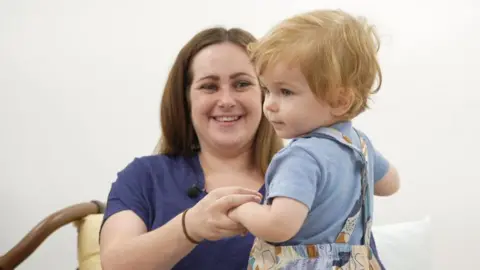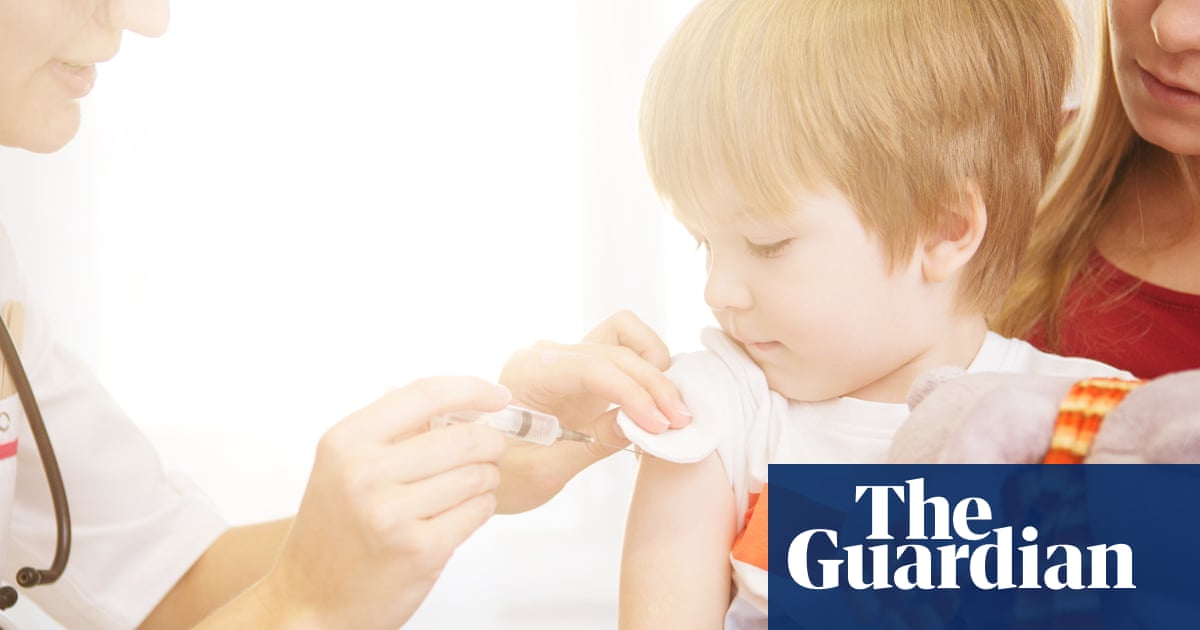Philippa Roxby
Health reporter

 University Hospital Southampton
University Hospital Southampton
Ceri Cox's two-year-old son Harry took part in a trial of the injection
Thousands of premature babies in the UK can now be protected against a common winter virus which can cause a dangerous lung infection, and sometimes kill.
The injection will provide them "with a protective bubble" against RSV (respiratory syncytial virus) in time for the colder months, NHS medics said.
Most babies are protected via vaccination late in pregnancy, but babies born before 32 weeks are more vulnerable to life-threatening infections from the virus.
From late September, 9,000 babies and young children at risk across the UK will be offered a dose of the drug nirsevimab through the NHS.
RSV usually causes coughs and colds, but can make some children very ill with breathing problems, pneumonia and a lung infection called bronchiolitis.
According to NHS England, premature babies are three times more likely to go to hospital with RSV and are 10 times more likely to need intensive care compared with full-term babies.
Every year around 30,000 children in the UK aged under five need hospital care because of the virus, and around 30 don't survive.
The drug offers six months' protection in a single dose, and is more than 80% effective.
Neo-natal clinics will deliver the injection to premature babies. Families of vulnerable infants with heart or lung conditions or weakened immune systems will be advised by their medical teams how to get the jab before this winter.
"It will offer a long-lasting defence, helping to avoid unnecessary hospitalisations and serious illness, giving babies the best possible start in life and shielding them from harm," said Dr Claire Fuller, co-national medical director for NHS England.
Last year, a vaccination programme was launched in the UK to protect newborn babies and older people from RSV. Women who are at least 28 weeks' pregnant and people aged 75 to 79 are now offered that vaccine, called abrysvo.
The jab boosts a woman's immune system during pregnancy and protects babies in their first weeks of life.
But babies born prematurely, before 32 weeks, don't have time to build up protection from that vaccine before they're born.
They will be given nirsevimab instead.
Unlike a vaccine, which prompts the body to create antibodies and takes a few weeks to be effective, nirsevimab gives immediate protection from RSV infection.
Ceri Cox, 33, wanted her son, Harry, aged two, to be protected as much as possible against RSV. As a paediatric nurse, she has seen the damage it can do.
"I know quite a bit about the virus from working in a unit where we see a lot of children with RSV every year," she said.
"It's amazing that this immunisation will now be offered to young babies around the country. I hope we will see fewer little ones in our hospital this winter."
Harry took part in an international clinical trial of the immunisation at University Hospital Southampton.
Premature babies and high-risk infants in England, Scotland, Wales and Northern Ireland will benefit from the drug.
What are the symptoms of RSV?
They usually start within a few days of being infected.
Most people only get cold-like symptoms, such as:
- a runny or blocked nose
- a cough
- sneezing
- tiredness
- a high temperature – signs include your back or chest feeling hotter than usual, sweatiness and shivering (chills)
Babies with RSV may also be irritable and feed less than usual.
If RSV leads to a more serious infection (such as pneumonia or bronchiolitis) it may also cause:
- a cough that gets worse
- shortness of breath
- faster breathing or long gaps between breaths
- difficulty feeding (in babies) or loss of appetite
- noisy breathing (wheezing)
- confusion (in older adults)
Source: NHS UK website

 21 hours ago
2
21 hours ago
2










 English (US)
English (US)